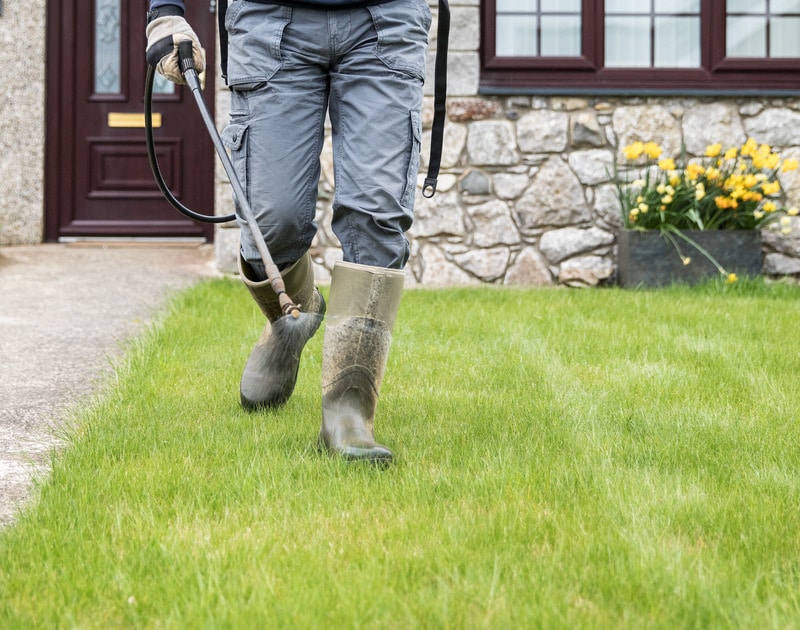A “weed” is just our name for plants we would rather not have around. Having these nuisance plants in our yards or gardens is not just unsightly; they pilfer the nutrients, water and sunlight that the plants we DO want need to thrive. So, while killing these plants may sound harsh at first, to prevent your property from turning into a jungle, it is certainly necessary.
How to control weeds proactively
To give your plants the best chance of winning in the battle for resources, make sure you are assigning them to places that they are suited for — plants that need light being in the light, shade plants in the shade, etc.
Weeds will try to establish themselves wherever they can though, so being proactive is the best strategy. Mulching in areas you don’t want plants to grow will keep them at bay. Also, pulling weeds when they first emerge and their root systems are not firmly entrenched is wise. After a good rain, you may find this process is fairly effortless.
Pre-emergent herbicides
Herbicides (or weed killers) are generally broken into pre and post emergent types. This is a reference to whether the seed has sprouted and emerged from the soil. For seasonal grasses and broadleaf weeds, dacthal, also known by its longer name, dimethyl tetrachloroterephthalate, is the active ingredient found in many brands. This will eliminate seeds before they fully germinate and develop into weeds you will later have to pull. Trifluralin is another commonly used chemical in pre-emergent herbicides.
Post-emergent herbicides
Glyphosate, which is in Roundup and other top brands, is more of a post-emergent herbicide used when the weeds are already visibly sprouting. The problem with glyphosate products is if they are used too generously, you will kill the plants you wanted as well as the ones you were attempting to eliminate.
Other differences
Persistence and selectivity are two other important distinctions in herbicides. Persistent herbicides will continue to work for long periods of time. Their presence in the soil will “persistently” prevent weeds from growing, while non-persistent herbicides will only kill weeds at the time they are applied.
Selective herbicides are designed to kill a specific weed, so you can use them around other plants with some confidence the plants you want to keep won’t be affected. Non-selective herbicides on the other hand will kill a wide-variety of plants, even many you wish they wouldn’t. That is important to know before you start spreading herbicide on your property.
Anthony’s knows weed killing
If there’s one thing we’ve learned over many years of making Bloomington, Indiana, area properties beautiful, it’s targeting weeds for removal while allowing wanted plants to thrive. Anthony’s can quickly tell which herbicide would be appropriate for your weed problem situation and then apply it. Give us a call at (812) 345-5694, and we’ll get to work removing those unsightly weeds from your lawn or garden.


Recent Comments